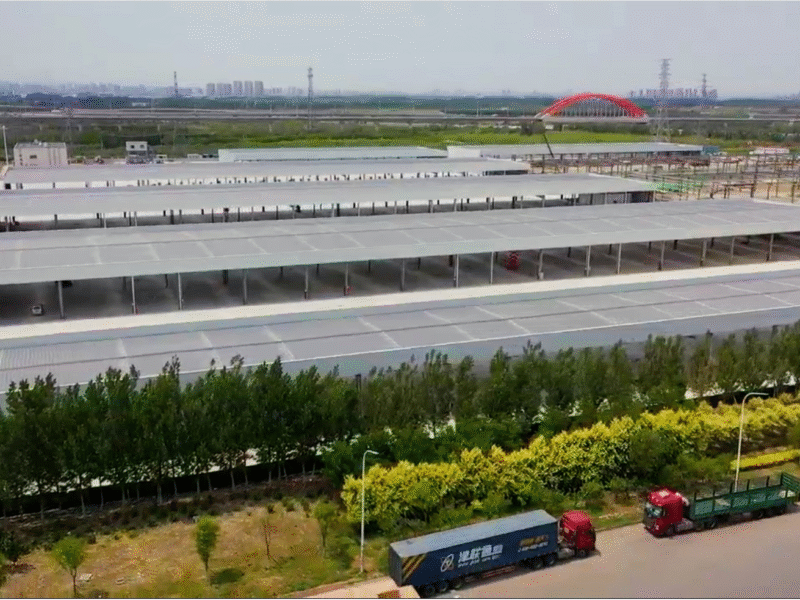
Modular Steel Workshops: Fast, Flexible, and Durable Workspaces for Industrial Clients
Industrial operations often require workshops that are robust, adaptable, and efficient. Traditional construction methods can be slow, costly, and inflexible, limiting productivity and operational flexibility. Modular steel workshops provide an innovative solution, combining prefabrication, rapid assembly, and long-term durability.
This article explores the benefits, design considerations, and applications of modular steel workshops for B2B clients in manufacturing, logistics, and industrial sectors.
What Are Modular Steel Workshops?
Modular steel workshops are prefabricated buildings constructed with steel frames and insulated panels. Modules are manufactured in controlled environments and then transported to the site for assembly.
Unlike conventional workshops, modular steel structures are highly customizable in size, layout, and design. They can include specialized work areas, storage zones, offices, or mechanical installations, while allowing future expansion without disrupting ongoing operations.
Key Advantages of Modular Steel Workshops
- Rapid Deployment
Prefabricated modules allow construction to occur faster than traditional methods. Workshops can be operational in weeks instead of months. - Durability and Strength
Steel frames provide superior structural integrity, resistance to fire, pests, and extreme weather. These workshops require minimal long-term maintenance. - Cost Efficiency
Reduced on-site labor, minimized material waste, and shorter construction timelines lower overall project costs. - Flexibility and Scalability
Modular workshops can be expanded horizontally or vertically to accommodate increased production needs without major disruption. - Customizable Layouts
Interior configurations can be designed for manufacturing lines, repair stations, storage, or administrative areas, tailored to specific operational requirements. - Energy Efficiency
Insulated panels, natural lighting, and energy-efficient HVAC systems reduce operational energy costs and environmental impact. - Safety Compliance
Prefabricated workshops are engineered to meet industry safety standards, including fire resistance, load-bearing capacity, and emergency accessibility.
Design Considerations for Industrial Clients
B2B clients should focus on:
- Workflow Optimization: Layouts should maximize efficiency for personnel, equipment, and materials.
- Structural Requirements: Ensure modules are reinforced for specific machinery, storage racks, or heavy-duty equipment.
- Ventilation and Lighting: Incorporate natural light and mechanical ventilation to improve safety and productivity.
- Future Expansion: Plan modular layouts to allow seamless addition of new workspaces or storage areas.
- Accessibility: Design entry points, doors, and pathways to accommodate vehicles, forklifts, and equipment.
Applications Across Industries
Modular steel workshops are suitable for:
- Manufacturing Facilities: Workshops for assembly lines, repair, or fabrication.
- Automotive and Machinery Repair: Durable spaces for mechanical work and parts storage.
- Logistics and Warehousing: Maintenance workshops for transport and storage operations.
- Research and Prototyping Labs: Flexible layouts for testing, assembly, and design projects.
- Construction Companies: Temporary or semi-permanent workshops on project sites.
Case Studies
- Automotive Workshop (Germany):
Installed modular steel workshops with reinforced floors and mechanical bays. Rapid assembly allowed operations to begin within four weeks. - Manufacturing Plant Expansion (USA):
Added modular workshops alongside existing production lines without halting ongoing operations. Reduced construction cost and time by 40%. - Construction Equipment Maintenance (Australia):
Built modular workshops on-site for heavy machinery repair. Durable steel construction minimized maintenance and ensured operational safety.
Why B2B Clients Should Consider Modular Steel Workshops
Modular steel workshops provide clear benefits for industrial clients:
- Speed: Rapid assembly reduces downtime and accelerates operational readiness.
- Durability: Steel structures withstand heavy use, extreme weather, and fire.
- Cost Savings: Reduced construction time and maintenance expenses lower total costs.
- Flexibility: Modular design allows layout customization and future expansion.
- Operational Efficiency: Optimized workflows and configurable layouts enhance productivity.
- Sustainability: Energy-efficient panels and recyclable materials support environmentally responsible operations.
For industrial clients, modular steel workshops are a strategic investment that ensures operational efficiency, durability, and adaptability for long-term growth.
Conclusion
Modular steel workshops are transforming industrial operations by providing fast, flexible, and durable workspaces. Prefabrication, modular layouts, and energy-efficient designs support operational efficiency, reduce costs, and ensure safety.
For B2B clients in manufacturing, logistics, and construction, investing in modular steel workshops is a practical, scalable, and sustainable solution that meets modern industrial demands.
